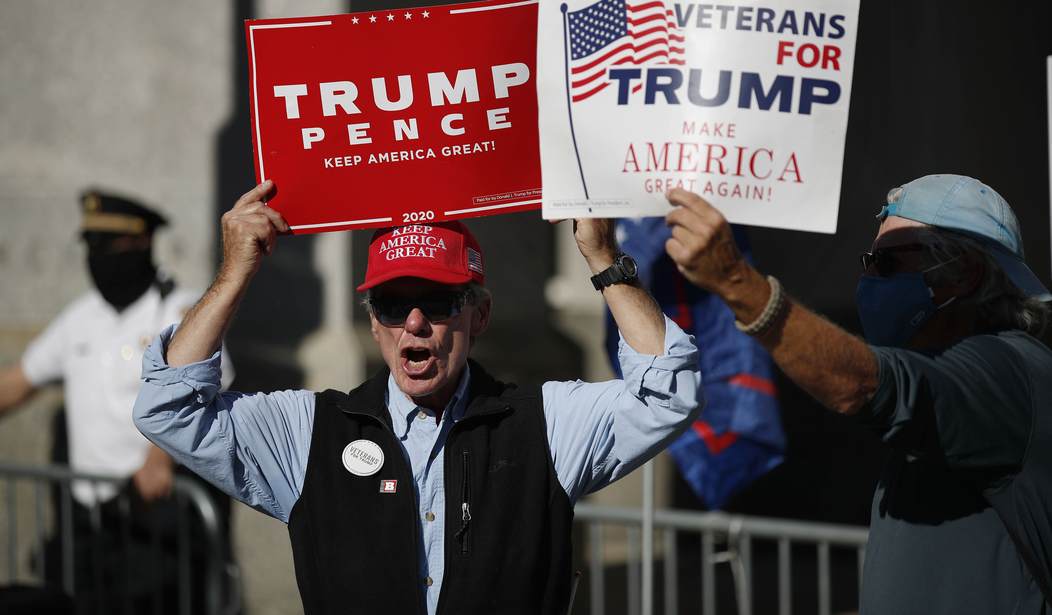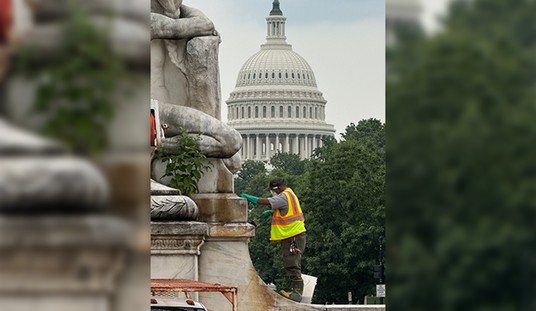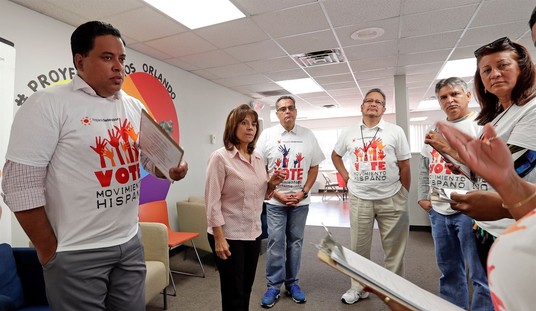Late on Friday the Trump Campaign filed a Motion to Compel Discovery in the case pending in the Middle District of Pennsylvania, where the issues raised involving whether seven named County Boards of Election violated Pennsylvania election law by “pre-canvassing” the mail-in ballots earlier than 7:00 a.m. on election day as specified by law, and then used information from such pre-canvassing to contact voters with defective ballots so they could vote provisional ballots on election day.
The evidence that such activity took place is significant and likely beyond the ability of the defendants to seriously contest. As I noted in this story, a Motion to Intervene by the NAACP includes declarations from voters in Philadelphia and Montgomery Counties stating they voted by provisional ballot for this very reason — they were contacted either on election day or before election day, were told their mailed-in ballots were being rejected, and they needed to vote in person.
Prior to pre-canvassing, the mail-in ballots were in the possession of the County Boards of Election. “Pre-canvassing” involves opening the envelopes, inspecting the ballots to see if they are properly completed, and recording the votes. But state law prohibits the disclosure of any information regarding the ballots.
There were two primary causes for mail-in ballots being rejected during pre-canvass — the voter failed to place the ballot itself inside an inner “security sleeve” before placing the sleeve inside the return-envelope for mailing, and the voter failing to place his/her signature on the declaration printed on the outside of the return envelope. Rejected ballots — all parts of them — were to be retained and accounted for by the County Boards.
Prior to pre-canvassing, the mailed-in ballots were in the possession of the County Boards of Election. “Pre-canvassing” involves opening the envelopes, inspecting the ballots to see if they are properly completed, and recording the votes. But state law prohibits the disclosure of any information regarding the ballots.
In this article by Margot Cleveland at The Federalist on Thursday, she includes an interview with Joe Kantz, the chairman of the Snyder County Commission and the chairman of the Board of Elections for more than 10 years. He told her that as soon as they began pre-canvassing ballots on the morning of election day, an out-of-state poll watcher for the Democrat Party began demanding the names and addresses of Democrat voters whose ballots were being rejected. He produced an email from the Office of the Secretary of the Commonwealth, Katherine Boockvar, stating that information on rejected ballots — including the voter’s name and address — should be provided to campaign or party officials on request. Jantz’s Board did not disclose the information. He told Cleveland that approximately 60 ballots were rejected for failure to include the “security-sleeve”, and another 25 were rejected due to the voter’s failure to sign the declaration on the return envelope. No voters were notified of the failure, and none voted a provisional ballot to “cure” their defect.
As it turned out, according to the Federalist article, the day before the election the Democrat Party of Pennsylvania had already organized an operation for contacting those voters on election day, advising them that their mail-in ballot had been rejected, and then helping them got to their polling placer to cast a provisional ballot. Compensation — $400 for the day plus $100 for gas.
The Trump Campaign sent four interrogatory questions to the various defendants in the case and filed a motion yesterday seeking a Court order that the Defendants be compelled to provide answers to the questions on an expedited basis. Those questions are:
- County Defendants: How many mail-in ballots and absentee ballots were
counted and how many were invalidated? How many secrecy ballots were
received? - County Defendants: How many mail-in and absentee ballots lacking a signature,
lacking an inner secrecy envelope, or otherwise defective were “cured” by a
provisional ballot after you or your agents contacted a voter to inform them of the
defect in their ballot? - Secretary: When did the Secretary of State’s office become aware that the
County Election Board defendants were, prior to the election, engaged in
inspection of mail-in and/or absentee ballots and communicating to voters where
such ballots were deemed defective? - Secretary: Describe how you became aware that the County Election Board
defendants were, prior to the election, engaged in inspection of mail-in and/or
absentee ballots and communicating to voters where such ballots were deemed
defective and all steps you took to ensure that uniform procedures were being
followed throughout the State.
This is information that has been slow to be produced in any comprehensive form, and as noted in the motion, the answers to the first two questions are supposed to be matters of public records after an election. Knowing the number of mail-in ballots, and the number of secrecy sleeves would produce the number of defective ballots that should have been rejected for that reason.
The second question would simply match the “provisional” ballots to voters who had their mail-in ballot rejected during pre-canvass. Given what has been admitted thus far, it seems impossible for the defendants to contest the fact that voters who had their ballots rejected during pre-canvass became the focus of an organized effort by Democrat operatives — with the information given to them in violation of Pennsylvania law — to generate more votes for Joe Biden. The answers to these questions will reveal how extensive those efforts turned out to be.
The third and fourth questions begins to approach the issue of corruption by the Office of the Secretary of the Commonwealth. Why did she not take steps to stop pre-canvassing prior to Election Day if she had information it was happening. The Governor had sought legislation that would had allowed pre-canvassing of mail-in ballots to start prior to election day, but that GOP Legislature had refused to change the law. The County Boards seem to have defied the Legislature and did as they deemed fit. What did the State not intervene?
As noted in the Motion, the answers to these questions will determine who will be called as witnesses in the upcoming evidentiary hearing on the Campaign’s motion for a preliminary injunction that would prohibit Boockvar from certifying the vote in accordance with Pennsylvania law. That certification is necessary before Electors can be designated by Pennsylvania in advance of a meeting of the electoral college next month.
The lawsuit received a set-back yesterday when, in a different case involving private voters in Pennsylvania, the Third Circuit Court of Appeals ruled that the voters lacked standing to bring an action based on the “Elections and Electors” clauses of the United States Constitution, which provide that only a state’s Legislature may determine the time, place, and manner of the selecting of electors in a presidential election contest. The Court ruled that the “right” in that regard belongs to the Pennsylvania Legislature, and only the Pennsylvania legislature can bring an action to enforce that right.
On Friday night the Trump Campaign filed notice acknowledging the Third Circuit decision, and since the Pennsylvania Legislature is not a party to this action, the claims made based on the “Elections and Electors” clauses are lost for now. But this same issue is pending before the Supreme Court, and if that pending case is resolved in favor of the Trump campaign’s position, the relief sought — invalidating ballots received after 8:00 pm on election day — would apply to this case as well.
I expect the Defendants will oppose providing answers to the questions until their motions to dismiss are resolved since they allege other grounds challenging whether the Plaintiffs have standing to bring this action, as well as claims that the Plaintiffs should be forced pursue claims in state court first.















Join the conversation as a VIP Member